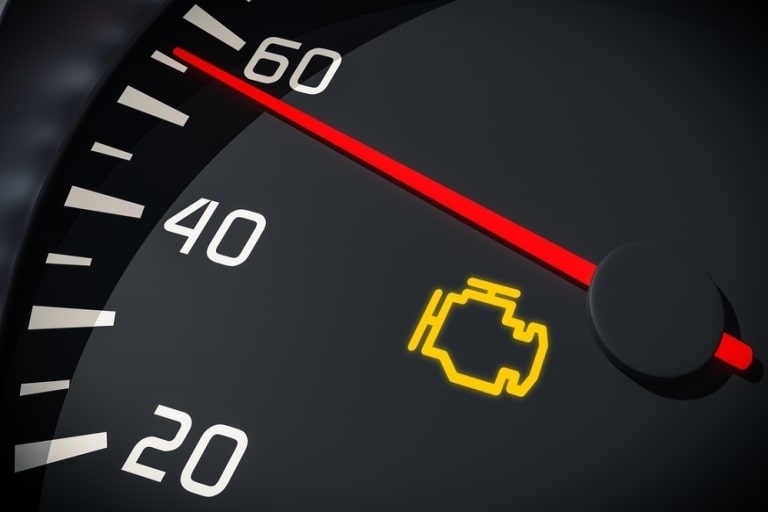Because of their hidden location underneath and at the rear end of vehicles, exhaust systems are often neglected by car owners until their issues become too serious.
However, a malfunctioning exhaust system is not something you should ignore, as leaks can cause toxic gases to enter the passenger cabin and harm the health of everyone inside.
To ensure that your exhaust system is working properly and your car is safe to drive, it’s crucial to find and fix leaks as soon as they occur.
If you notice any of the following exhaust leak symptoms in your vehicle, it’s best to make an appointment with your mechanic or service provider to avoid danger or damage down the road.
1. Loud or Unusual Engine Sounds
Do you notice your engine being louder or noisier than usual while driving?
One of the main functions of your car’s exhaust system, specifically your muffler, is to reduce the level of noise as your car burns fuel.
Leaks can allow exhaust to leave the system before getting to the muffler, which creates strange or noticeably louder sounds, including:
- Loud rumbles when accelerating
- Occasional popping, spitting, or hissing
- Blowing or high-pitched whistling from underneath the car
- Rattling or clanking metal
2. Loss of Power and Acceleration

Exhaust leaks can also affect the performance of your engine. To run at its best, your engine needs an uninterrupted exhaust flow, where air flows quickly and smoothly through the system.
A leak affects the way your engine “breathes” and causes drops in back pressure, resulting in reduced power and acceleration.
You may observe this when your car fails to accelerate like it normally does when you press down the gas pedal.
Unfortunately, this sluggish acceleration and sudden drop in performance will only continue and can even worsen over time unless you address the leak.
3. Vibrating Gas Pedal
Another common symptom of an exhaust leak is a shaking or rattling gas pedal. This is caused by the rapidly escaping fumes that are passing through a small hole.
The intensity of the vibrations depends on the size of the leak, and it tends to increase every time you step on the pedal as the rate of airflow through the exhaust system goes up.
Eventually, you may feel vibrations throughout your steering wheel, floorboards, cabin, and the entire vehicle.
This issue can seem like a small inconvenience at first, but it can compromise your safety as it makes driving more difficult and dangerous.
4. Exhaust Odor
Damaged exhaust pipes can allow gas fumes to leak into the passenger cabin of your car from under the seats or through the windows. This will cause everyone inside to smell gas fumes or a burning odor.
Leaks can also cause changes in the smell of the exhaust, resulting in gasoline odor or the smell of a rotten egg.
This is one of the most harmful and alarming symptoms because carbon monoxide poisoning is a serious threat to you and your passengers’ health. Note that leaks can also be odorless, making them tougher to spot.
If you experience this symptom and start feeling dizzy or weak, turn off the car and step out immediately to get fresh air. Consider having your car towed to your service center instead of driving it further.
5. Lower Fuel Economy
Do you suddenly need to take more trips to the gas station than usual? Is your average gas mileage lower than it used to be? An exhaust leak could be the culprit.
Leaks disrupt the proper air-to-fuel ratio in your engine by drawing in outside air and causing the oxygen sensor to inject extra fuel, resulting in unburnt gas in your exhaust.
This causes your car to run less efficiently, your engine to work harder, and your other components to experience problems because of the incorrect fuel mixture.
6. Check Engine Light

Did you know that an exhaust leak can trigger your check engine light?
A leak causes your car’s oxygen sensors to produce faulty readings while monitoring emissions and fuel mixture. When the oxygen sensors detect these faulty readings, they’ll send information to your engine control unit.
The control unit will then turn on the check engine light on your dashboard to inform you that your vehicle needs attention.
7. Failed Emissions Test
In some areas, you’ll need to pass a car emissions test yearly to preserve the environment, protect public health, and legally use your vehicle on the streets.
If your car failed an emission test despite running smoothly without any noticeable issues, it could be because of an exhaust leak.
Leaks that occur before the oxygen sensors will affect the air-fuel balance of your engine. Meanwhile, leaks located after the sensors will indicate an abnormally lean mixture on the test results.
These issues can cause you to fail the test, depending on the severity of your leak.
8. Visible Defects
You may be able to spot an exhaust leak in your car by carrying out a visual inspection. Pay close attention to your exhaust pipe and look for broken rubber hangers, rust, and corrosion damage.
The heavily rusted parts of your exhaust system are particularly vulnerable to leaks, and the presence of black soot on your pipe, muffler, or other components indicates a high chance of a leak.
Shaking and bumps from driving on rough roads can also cause structural components of your exhaust system to weaken and eventually leak. Check for holes and broken parts in the catalytic converter, resonators, joints, and gasket.
Wrapping Up
Exhaust leak symptoms in your car may seem insignificant at first, making them easy to ignore. Your vehicle might even run just fine, with a small noise here and there and a slightly reduced performance.
However, a leak that requires a simple repair can turn into a serious one over time, potentially harming your health, safety, vehicle, and the environment.
Your best defense would be to address any exhaust problems promptly and have them examined by a trusted service provider.




